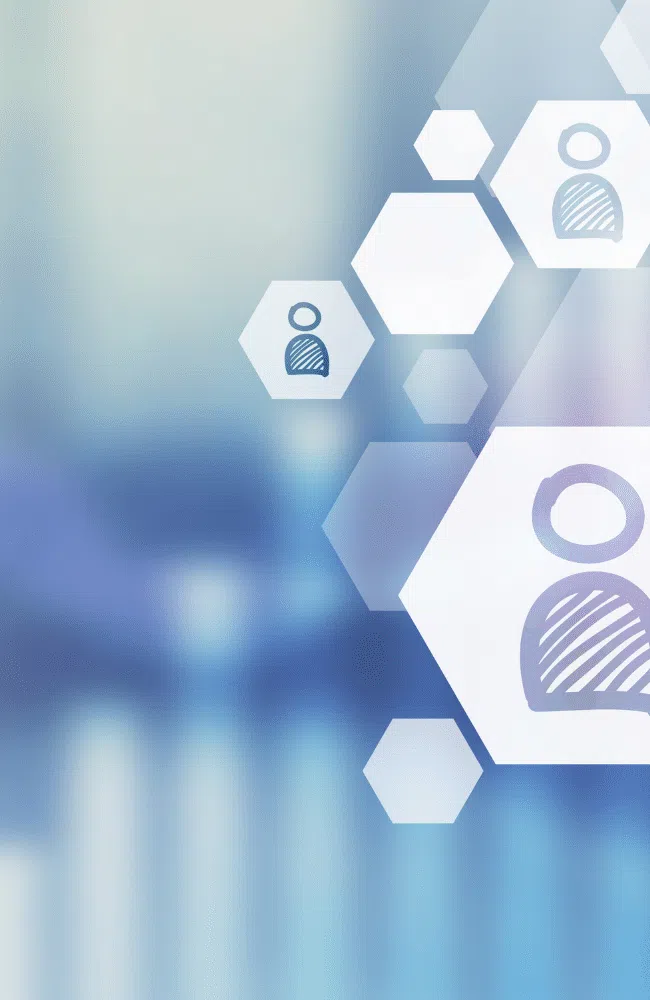Posted October 19, 2021
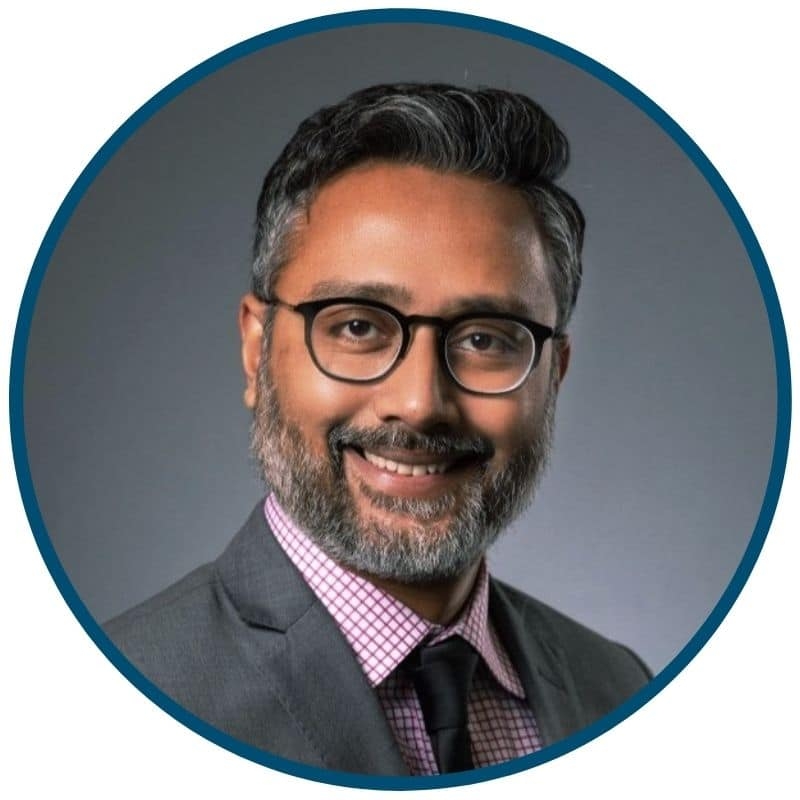
Tahsin Alam
Associate Dean of Advancement at University of Washington - Michael G. Foster School of Business
On the current candidate market…
I think our existential crisis in this moment is the tennis game that’s being played between leadership and staff about the future of telecommuting. Leaders are spending a lot of time obsessing over solving the telecommuting issue for the rest of time when in fact, they just need to think about the next year. Staff needs and desires will change again in the next 12 months. But as far as the next year is concerned, the ability to offer telecommuting will be the currency for hiring talent. If you’re not able to offer some version of it, you are going to lose the talent war.
If we think about talent recruitment challenges more insofar as the next ten years is concerned, then I would point to the lack of supply of talented individuals within our industry. In my opinion, we hobble ourselves by failing to look outside of our insular world of higher education to consider professionals from other industries who possess transferable skills. We need to be asking, “What skills do we need in this position?” and not, “What kind of identical experience did the candidate have in previous roles?”. In fact, we barely look outside the specialization verticals within our own industry – we think that a donor relations person can only ever do donor relations. We don’t consider that they may have the SKILLS to be an excellent corporate relations officer, for example.
On addressing employee health…
Employers need to provide flexibility – which is a very different consideration from telecommuting. One of the policies I championed at Rutgers was, “arrive when you can, leave when you need, and do your work when you can do your work.” If that meant arriving at 10:30, leaving at noon for an hour to address a childcare issue, and then returning to work, that was fine by me. Now, in the midst of the pandemic when employee burnout and stress levels have reached monumental levels, providing flexibility is critical. It communicates to your employees that you understand this new world we’re in. Add to this, our vastly aging population and the increase in elder care, you’ve got a serious opportunity to show understanding and win the day with talent.
Also—and this is specific to higher education advancement—I believe there should be more research and investment in the fact that our industry is majority female. Our programming, workplace environment and flexibility should address that reality. However, that’s rarely the case. I think smart workplaces consider the demographics of their staff and adjust their policies accordingly.
On adapting to new work models…
My experience with the hybrid workplace has been mixed. I joined the University of Washington earlier this year and have not yet had the chance to meet everyone on my team. As a new leader of a department, I’m feeling the pinch of not being able to see everybody in person and be in the office together. At the same time, my experience is vastly different than that of my team members’. The average tenure of my staff is 13.5 years. Because they’ve worked together for so long, they have been able to achieve a level of collaboration and partnership that seems almost identical to their working relationships pre-pandemic. I think this is unique. In a workplace where the average tenure of the staff more closely aligns with the industry average, which is 2.5-3 years, that teamwork ability can decrease anywhere from 10-35% while remote. It’s an important distinction to understand.
To counteract that loss, I recommend trying to bring staff together in an outdoor setting every two weeks for an all-hands meeting – assuming you can do so safely and the weather allows. That might be difficult to arrange depending on where you live but being together can truly make a difference. Another suggestion would be to increase the number of one-on-one meetings between managers and staff. Throughout my career, I’ve always made a point of meeting with my direct reports once a week every week. I have seen instances where heads of major gifts haven’t met with their major gift officers for 6-8 weeks. That’s not acceptable – especially, when we’re all remote.
On committing to DEI…
In my former role of Vice President, Advancement Solutions and Talent Management at Rutgers University, my team almost singularly prioritized increasing the racial diversity of the Foundation. In 5 years, staff racial diversity increased from 13% when I first joined to 32% by the time I left. I had the benefit of pulling from a very strong and diverse pool of colleagues in higher education on the east coast. Now, at University of Washington, we’re on a bit of an island. There isn’t as much diversity in the Pacific Northwest, so that’s been a challenge. And for me, diversifying our staff has always come first. Of course, equity and inclusion are important, but if we do not have diversity, then discussing these matters can sometimes feel solely academic. My main priority is bringing diverse people to the table; then we can have a more robust discussion on belonging and inclusion.
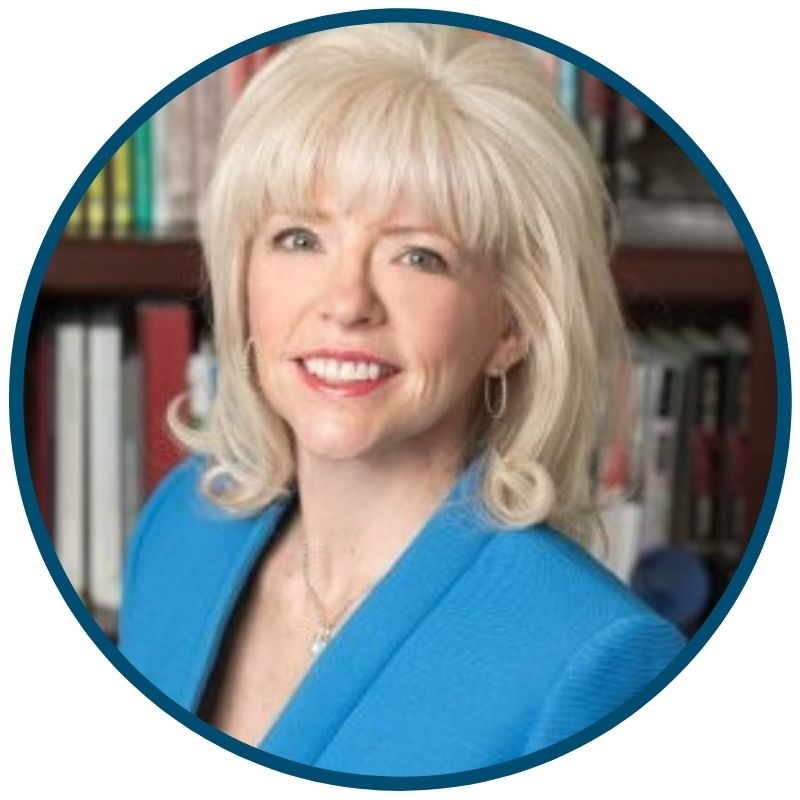
Amy Bronson
Associate Vice President, Advancement Resources and Talent Management at Boston University
On the current candidate market…
Although the current talent frenzy in the market due to pandemic/societal change is certainly a challenge, we see a great opportunity to bring on new talent seeking a healthy, inclusive culture that supports employees in doing their best work. Like many peers, Boston University had a hiring freeze, so we utilized that time to do strategic succession planning, knowing that we would have significant turnover – some of which would have happened anyway due to the end of our campaign. Thus, we have been able to promote over 30 people since June, celebrate some longer term staff who want to gain experience at other institutions (or professions), and prepare for recruiting and growing staff for our next campaign. The challenge will be competing with other institutions for candidates who are looking for a different relationship with their employer than they have in the past. From remote/flex work, shared values, work/life integration, fair market compensation, career planning to a compelling mission, candidates are taking a much more critical look at how we do business and how they can add value in a supportive, inclusive and transparent culture.
On addressing employee health…
We are fortunate at BU to have leadership that recognizes the essential need for wellness, from our President down. The University has offered everything from private counseling to yoga to parental support. In Development and Alumni Relations (DAR) we identified the challenge early on in the pandemic and addressed it in a number of ways. We started with managers – the first line of recognizing and managing their staff’s wellbeing. We created a monthly Manager Forum and do 1:1 check-ins often. Goals have been adjusted where needed, and we are all now able to work 2 days remotely. We started a COVID-19 Resource Group to help staff process pandemic challenges and come up with solutions. We created a new Mission, Vision & Values program that reinforces collaboration and community so we are looking out for and supporting each other. We have given staff time off, and encouraged vacations and leave where needed.
On adapting to new work models…
Hybrid/virtual work models are here to stay so BU is creating ways to ensure that we remain a community and that we don’t create two separate work forces. The University created a policy, after input from staff, which gives us up to 2 days remote in most cases (based on your role and need for on campus presence). In DAR, everyone is eligible for their 2 remote days but we all come to work on Mondays, so we can be sure to be able to connect with each other in person at least one day. Departments created schedules that work for them and we use Outlook calendar to show where we are on a given day. We also invested in technology, with training, so we are all able to navigate this new model. We are piloting this and will assess and adjust along the way. New hires can expect to receive the same hybrid options as current staff (2 remote days) with their manager and my team helping them onboard successfully – and our onboarding is now a hybrid program, too.
On committing to DEI…
Boston University’s commitment to DEI starts with the University’s strategic plan, which has five strategic priorities that capture the core of who we are as a private research university and that will guide BU over the next 10 years, and one of these priorities is Diversity, Equity and Inclusion. Our division has worked with University Offices, ally groups and with DEI programs in all 17 schools and colleges. As of last May, BU now recognizes Juneteenth as an official holiday and has renamed the October Columbus Day holiday Indigenous Peoples’ Day. Our division has implemented and strengthened a number of efforts; we have a DEI Council that has over 50 members and is comprised of 6 committees, meeting regularly with Senior Leadership to effect change. We have revamped our hiring and recruiting process to be more inclusive, including targeting transferable skills candidates. We have offered a number of workshops and training sessions, including our Book Club leading conversations around “How to be an Anti-Racist” by Dr. Ibram Kendi, who heads BU’s Center for Antiracist Research. And BU/DAR has partnered with Dartmouth to create the Amplify Women & Gender Initiative which won a CASE Grand Gold and has had over 150 women participate. Most importantly, we are reassessing all our programs via a DEI lens to create a culture of equity and belonging.
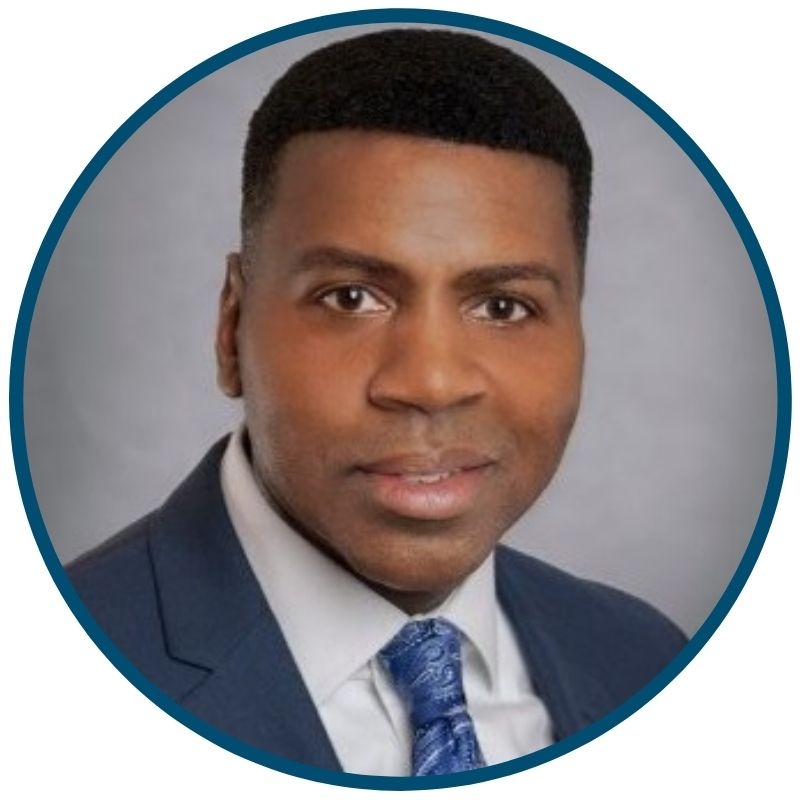
Robert Henry
Vice President, Development, Culture and Talent at Council for Advancement and Support of Education
On the current candidate market…
The greatest challenge is – the great resignation. As we know, individuals are quitting their jobs at a record high. Our division oversees Career Central, and we have found a +200% increase in job postings from 1st quarter FY22 verse FY21. The byproduct of the phenomenon is:
– The hiring process must move fast due to candidates in multiple searches.
– Candidates are requesting higher salaries.
The opportunity is understanding how to reduce resignations and enhance retention strategies.
– Begin conversations with staff and know their short and long-term needs.
– Be willing to make adjustments that meet a large majority of staff.
– Understand how the pandemic is “re-shaping” staff priorities.
– Create clear retention strategies for top and diverse talent.
On addressing employee health…
CASE at the beginning of pandemic created a “staff working group” to help the organization and leadership understanding the opportunities and challenges of working in this “new” norm. CASE conducted staff surveys about the requirements of working from home (including equipment and emotional support) to create program and activities to support staff.
On adapting to new work models…
Quickly during the pandemic, we created a virtual framework to add clarity on our events and programs. During the COVID-19, CASE witnessed the largest attendance of some signature programs in the history of the organization. The CASE ALL District conference observed over 19,000 registrations. Virtual offerings allow organizations to engage members (especially historically excluded groups) in ways we have never before. CASE, like many of our members, is thinking through the virtual/hybrid process moving forward. As you can imagine—it is not easy. Partially, due to legal constraints and because COVID is a moving target. However, in these conversations, I encourage us not forget the critical value of being in-person.
On committing to DEI…
For over three decades, CASE has long been committed to growing the diversity of the advancement profession and helping colleges, universities and independent schools strengthen relationships with an increasingly diverse alumni population. In July 2021, CASE created its first Development, Culture and Talent Division to focus on systemic issues of diversity, equity, inclusion and belonging (DEIB). In addition we conducted an internal diversity audit and established an internal DEIB steering group to develop/approve, monitor and evaluate the DEIB action plan, providing advice and guidance where necessary to ensure that diversity and inclusion remains a part of the core business strategy across the organization.
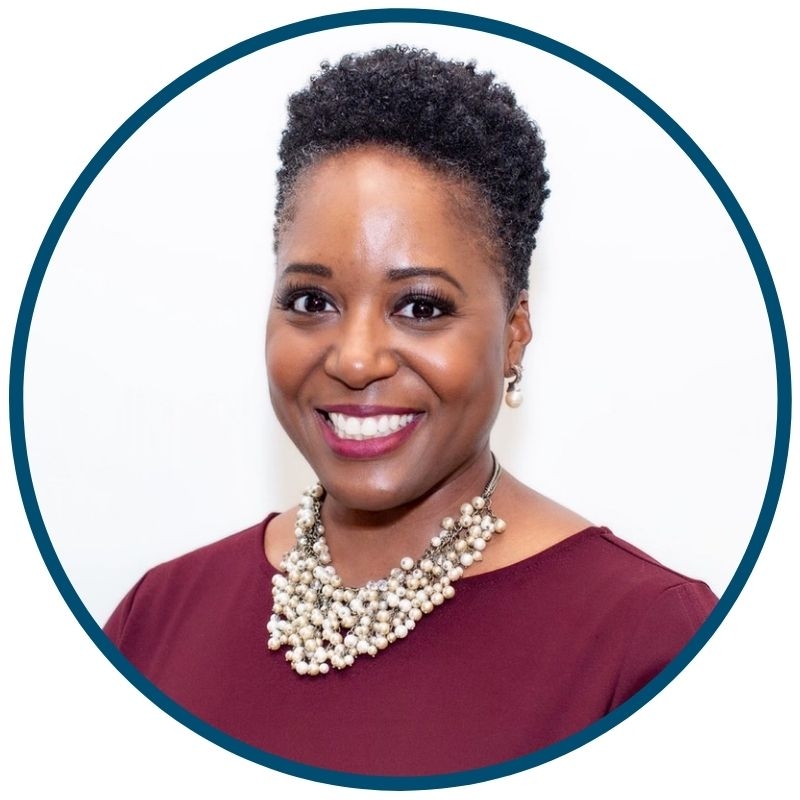
Nicole Dumas
Director of Advancement Talent at Boston College
On the current candidate market…
The most exciting opportunity is engaging associates with the meaningful work we do around advancement at Boston College. Candidates are drawn to working at a place where the impact of their work is seen and valued. Whether they are moving into higher ed from another industry or just starting their professional careers, they believe in our mission and want to be a part of it. Our challenges are not unlike those of other nonprofits, particularly in higher ed. The competitive labor market, coupled with the increased demand for experienced talent, and competitive salaries for that experience continue to be headwinds in this environment.
On addressing employee health…
BC Human Resources sends out a regular newsletter titled “Reduce Stress and Rebuild Connections” that offers several resources available to employees. In University Advancement, we have amplified the importance of employee mental and physical health to our staff. Pulse surveys were sent periodically throughout the pandemic, and our leadership continues to gather feedback and gauge how our associates are doing. When we returned to campus in August, we had a “Welcome Back Week,” which was an excellent opportunity to gather and reconnect with one another. We also held meditation sessions, boot camps, and yoga classes – virtually – which have been additive to the employee experience here.
On adapting to new work models…
Managers were surveyed about the need for various positions on their teams to be in the office or remote. Our leadership created a plan that allows individuals to either hotel or work on campus, with some remote options. Our leadership continues to assess the plan based on state and local recommendations and, of course, employee feedback. We’ve found that new employees generally prefer to be in the office to establish strong working relationships, with the opportunity of more flexibility after a period of time.
On committing to DEI…
We have created the Diversity, Inclusion, & Belonging Action Committee (DIBAC). The committee hosts regular meetings, examines our metrics, and provides their vision of how we, as a department, can deliver on DEI efforts. We also host book clubs and forums based on shared interests where staff can come together and engage in discussion with one another. Last summer, our team created a Talent Acquisition Handbook to walk our managers through the recruitment process with an eye on increasing diversity in our applicant pools and reducing bias in the interviewing and selection process. We have also overhauled our onboarding program to more meaningfully engage our associates with campus-related affinity groups and activities.
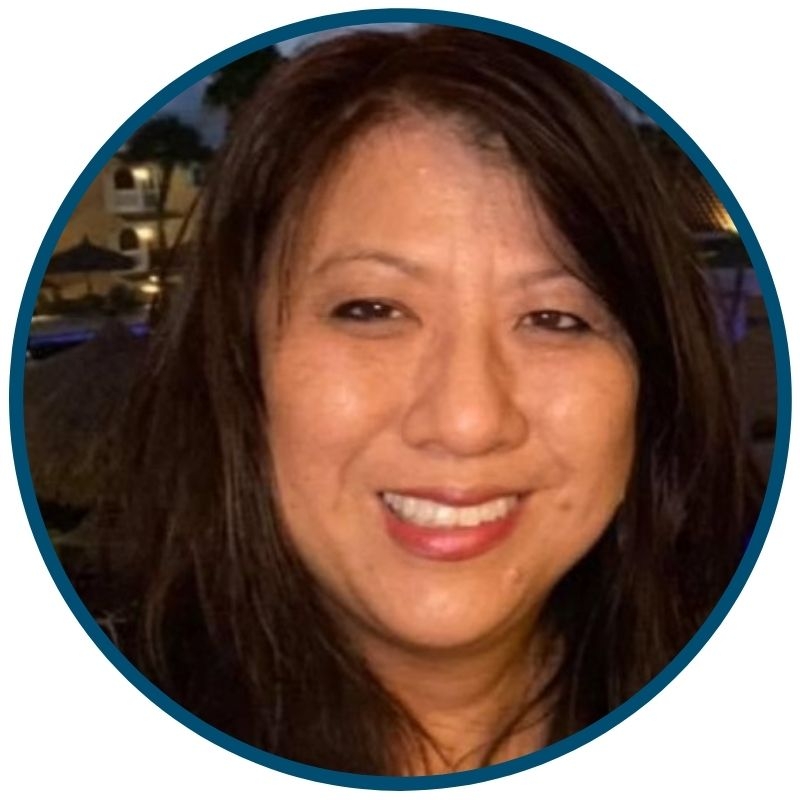
Lorraine Ng
Director of Talent Management at Massachusetts College of Pharmacy and Health Sciences
On the current candidate market…
Since the beginning of the pandemic, we’ve learned a lot, with regards to our ability to pivot and be flexible with an evolving situation, as well as the resilience of our employees. We went remote over a two-week timeframe, and we learned to adapt to virtual interviews, which has allowed us to recruit both local and national talent more effectively. Our employees and managers also learned how to work effectively and manage their teams remotely. As a result, we can offer candidates greater flexible work arrangements in a hybrid workplace. Technology is also an area that we have focused on in the past year-and-a-half, and as a result we have improved our systems and initial onboarding processes to be more streamlined and easier for new employees to join us. We are always looking for ways to improve the candidate experience, which is especially important when the market is as competitive as it is currently.
That leads to the challenge of recruiting now. This Fall, we are finding the market to be more competitive with candidates receiving multiple offers during our recruiting process. The need to move candidates quickly through to the offer stage is high. This is especially true for roles in Information Technology and Marketing, as well as for more junior administrative positions. To expand and diversify our candidate pools, we are using professional networks and other resources to tap into candidates who may or may not be actively seeking a new role.
On addressing employee health…
We already had a strong focus on learning and development for our employees before the pandemic. With the pandemic, we shifted the focus of our learning opportunities to topics relevant to the situation, such as managing staff remotely, balancing having family at home while working, meditation, etc. As a member of the Colleges of the Fenway (COF) and the Higher Education Consortium of Central Massachusetts (HECCMA), our employees have access to a wide range of workshops and online learning including professional, personal, mental, and financial wellness. We also hold fitness challenges yearly through our health provider to encourage our community to stay active.
MCPHS requires employees to be fully vaccinated, with exceptions for employees who cannot receive the vaccine due to medical or sincerely held religious beliefs and who request an exemption. We also have testing and face mask protocols to ensure a healthy and safe work environment. Our goal is to keep the entire MCPHS community healthy and safe while delivering high-quality educational experiences and comprehensive academic support. These protocols help us to enable our employees to thrive at MCPHS and make the greatest impact on those we serve.
On committing to DEI…
This is an important and exciting time for us as we are recruiting for our inaugural Chief Inclusion Officer. We are fully committed to and excited for the future of diversity, equity, and inclusion (DEI) at MCPHS. Timely and transparent communication has been a key for us to inform our employees about University-wide information and plans, whether they are ready for implementation or in-progress. We have also strengthened our commitment to DEI in several ways through our DEI Team, which has taken in feedback from our community and implemented some initial initiatives, such as the use of pronouns in emails and offering sessions on Unconscious Bias. Additionally, our DEI website is an important source for information and activities, such as the COF Juneteenth celebration and virtual webinar as well as acknowledgment and informative resources about Indigenous Peoples. We are active on the COF DEI Committee and work closely and collaboratively with each other to educate our communities.
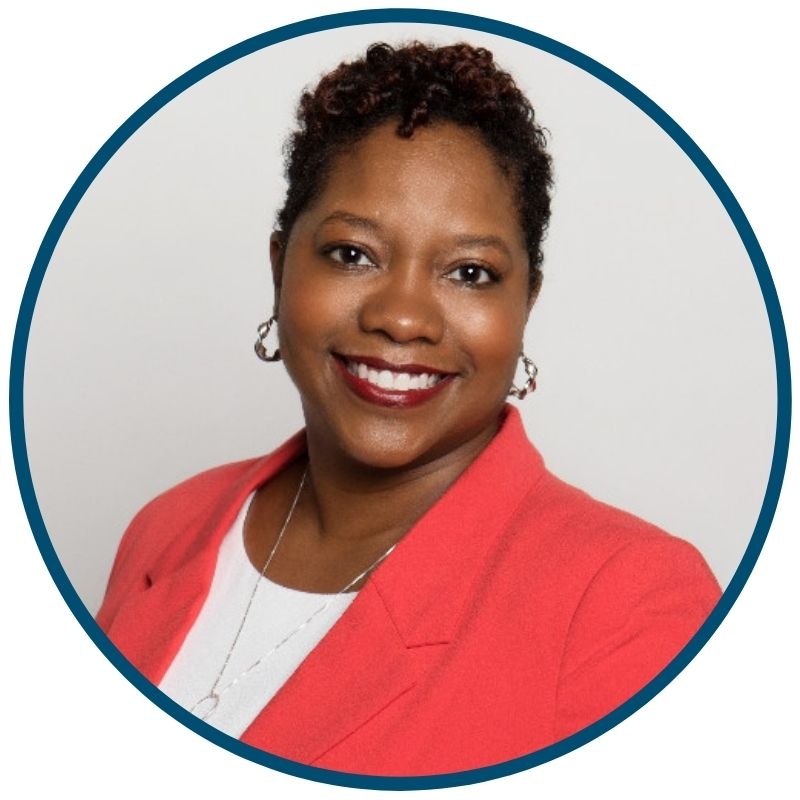
Frances Woodard
Vice President, People & Culture at National Quality Forum
On the current candidate market…
Anytime I’ve spoken with a peer or attended a webinar/conference in the past 6 months, there’s been discussion around the fact that there’s a lot of movement in the marketplace right now. The pandemic has motivated people to seek roles that align with their personal passions and interests. Additionally, those who may have been afraid to make a move during the peak of COVID—even if they were unhappy—are now actively looking for employers that care about their employees and show that. This is a positive change, but of course it’s also a challenge. Employers need to become more flexible so employees can control how, when, and where they work – with the understanding that none of that matters if the work is getting done and there is no detriment to the business. A lot has changed over the past 18 months. When I look out my window now, I see families walking together in the afternoon. Prior to the pandemic, that wasn’t happening. Parents were too busy, there wasn’t enough time in the day, etc. Values have shifted, and I think that’s fantastic. If we can give people that flexibility while still doing great work – I think that would be a very positive change in society.
On addressing employee health…
It’s been a tough year. I joined this organization about 18 months ago, and it was during a time of internal transition. Coupling that organizational change with the pandemic, our staff were having a very difficult time. We’ve made a number of decisions to try and lessen the stress they were experiencing:
– We instated a maximum flexibility policy last March as we want employees to feel ownership over how they manage work and life obligations.
– We eliminated our policy that required employees to be DC-based, and have started recruiting staff outside of the DC area to demonstrate our commitment to becoming a more remote workplace.
– We instated a policy around not scheduling meetings during the lunch hour. It’s too easy to go from meeting to meeting without any breaks while we’re fully virtual. We wanted to be thoughtful about the message we’re sending to staff and our expectations for them.
– We extended our vacation carryover policy because staff weren’t taking much time off during COVID. We did so to encourage our staff to take a break, even if they weren’t traveling anywhere.
In addition to these policy changes, we’ve been finding ways to inject some fun into our workplace. We’ve done a virtual escape room, trivia, virtual workouts – just to name a few. And they’ve made a difference. People have really appreciated and enjoyed those opportunities to come together. It’s also been critical as we’ve hired new staff during the pandemic; we want to provide them with a sense of community even if they haven’t met us in person. It’s important to recognize how creating a strong culture impacts an employee’s state of mind and their ability to feel a sense of inclusivity and belonging.
On committing to DEI…
We have embedded DEI into our 5-year strategic plan; our board was really challenging us to step up to the plate and we now have a defined plan that will hold us accountable. We’re also thinking about how DEI relates to our external work, including who we partner with and the programming we provide our members. And while we officially launched our DEI initiative this year, our staff had started pushing us to really think about how we could strengthen our commitment and meet our employees’ needs before that. We’ve created an internal staff council so everyone can share ideas about how to make ourselves more DEI-oriented, and we’ve enacted a number of changes based off their suggestions. We see this as an enduring commitment that must be part of our organization’s culture and DNA.
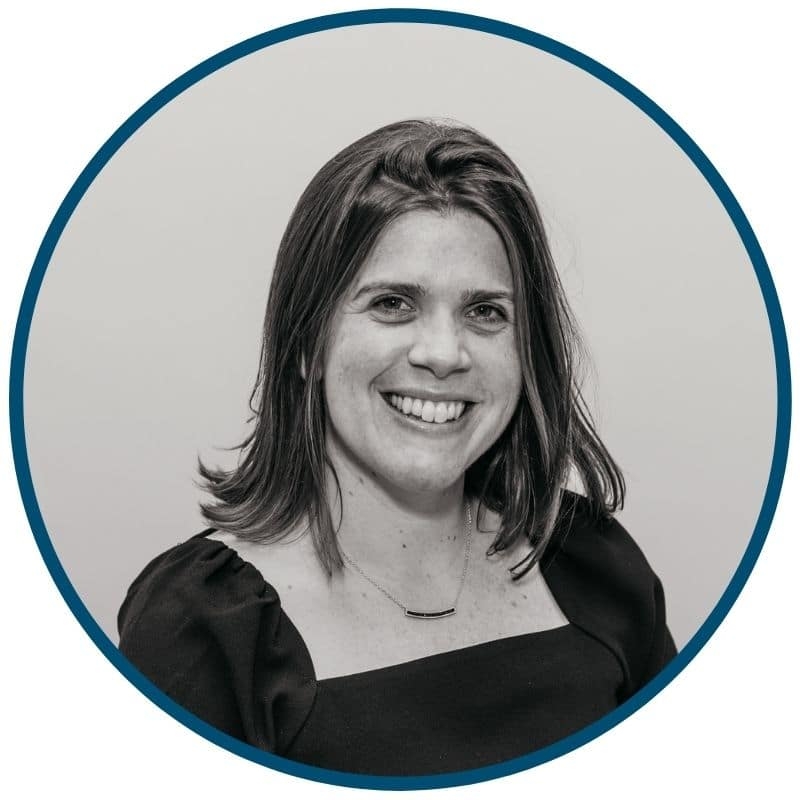
Louisa Macy-Gulinson
Assistant Vice President, Administration at Dana-Farber Cancer Institute & The Jimmy Fund
On committing to DEI…
In the wake of continued and unresolved social unrest and inequities, Dana-Farber Cancer Institute (DFCI/Institute) is committed to action. In alignment with a series of initiatives, programs, and investment of resources by Institute leadership across all departments, our Senior Vice President & Chief Philanthropy Officer, Melany Duval, encouraged all staff within the Division of Philanthropy to come together to share thoughts, ideas, and different lived experiences to fuel change. A Division-wide meeting in November 2019 included breakout sessions to make space for these discussions. Then, in partnership with the Office of Inclusion, Diversity, and Equity (ID&E) at DFCI, an ID&E Action Team in Philanthropy launched in March 2020, aimed at identifying how best to move this important work forward in a meaningful and sustainable way. A key recommendation of the Action Team was the establishment of a Philanthropy ID&E Council with representation from all teams, and across all levels, with a focus on actions and milestones in three key areas: Fostering an Inclusive Team, Engaging Diverse Supporters, and Telling an Inclusive Story.
Since the Philanthropy ID&E Council first convened in July 2020, we have gained significant momentum with actions that have become an important facet of our culture, embedded into how we do our work and how we work with each other. There have been many milestones to date of which we are proud, a few are highlighted below:
– Building the Team: Launched ID&E Interview Panels as part of every search to ensure that we are demonstrating from day 1 our commitment to action and inclusion of a variety of perspectives and experiences.
– Learning Together: Host an ID&E learning series for all staff. We believe that if we create a space and time for dialogue with external experts who have their own lived experiences, we will all grow.
– Sustainable Change: As part of our annual planning cycle, every team sets goals related to how we as a community will better engage the diverse donor and patient population we serve through our events, programs, and resources. By embedding ID&E goals into our daily practices, we hold teams and leaders accountable and give our community of supporters the opportunity to join us.
– Investing in Growth: Dana-Farber has made a $50 million commitment to support programs and initiatives that innovate and advance our ID&E work in and around the community.
In closing, I am sharing the Division of Philanthropy’s commitment statement authored by members of the ID&E Council. This statement, runs parallel to (not in place of) Dana-Farber’s core values and commitment statement and anchors our work every day as it appears in internal and external facing resources:
We’re stronger together.
In the Division of Philanthropy, we believe in the power of different voices. We encourage authenticity and diversity of every individual within our community. Our collective voices – donors, volunteers, staff, and patients alike – allow us to work together towards a world without cancer. Committed to being a place of inclusivity, belonging, and change, these are our core values.


